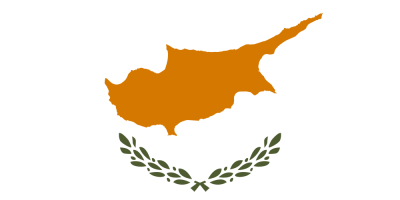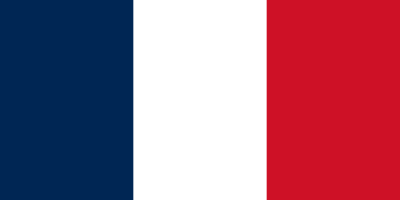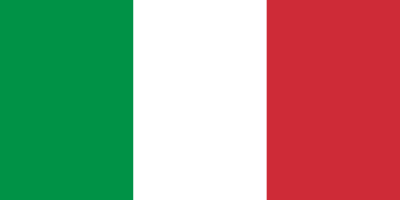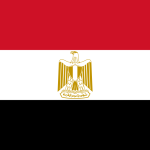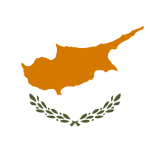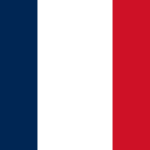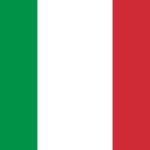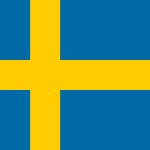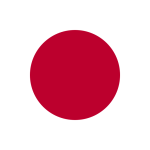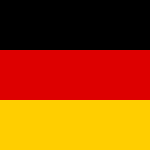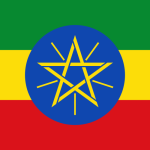Latvia flag color codes features two horizontal bands of equal width. The top band is crimson, while the bottom band is white. This iconic design beautifully represents the Latvian nation with its symbolic colors. In this article, we provide Latvia’s flag color codes in various formats including HTML HEX, RGB, PANTONE, HSL, CMYK, HWB, and NCOL. Read on to learn about the specific Latvia flag color codes that can be used for web design, graphic design, presentations, and any other projects requiring an accurate representation of the country’s national colors. With the provided Latvia flag color codes, you can easily integrate the correct hues into your work.
Table of Contents
What are the colors of Latvia flag?
The national flag of Latvia consists of two horizontal bands of equal width – crimson red on the top and white on the bottom.
The colors hold symbolic meaning:
- Crimson Red – This vivid red tone represents the bloodshed during Latvia’s struggle for freedom and independence over the centuries. It honors those who sacrificed their lives fighting for the nation’s liberty. The crimson evokes pride, valor, and patriotism.
- White – The white band symbolizes peace, harmony, and Latvia’s bright future. It expresses the Latvian people’s hopes for unity, safety, and purity of their homeland. The white represents new beginnings, honesty, and integrity.
In summary, the symbolic crimson red and white bands of the Latvian flag represent the nation’s bloody past and hopes for a peaceful future. The specific color codes allow accurate recreation of the iconic design in any medium.
Latvia flag color codes & Color Names:
RED
| Color Model | Value |
|---|---|
| HTML | #EF3340 |
| HEX | EF3340 |
| RGB | 239, 51, 64 |
| PANTONE | 186 C |
| HSL | 354°, 86%, 57% |
| CMYK | 0%, 79%, 73%, 6% |
| HWB | 354°, 6%, 6% |
| NCOL | #D30015 |
WHITE
| Color Model | Value |
|---|---|
| HTML | #FFFFFF |
| HEX | FFFFFF |
| RGB | 255, 255, 255 |
| PANTONE | N/A |
| HSL | 0°, 0%, 100% |
| CMYK | 0%, 0%, 0%, 0% |
| HWB | 0°, 100%, 0% |
| NCOL | #FFFFFF |
What is the meaning of colors in the Latvia flag?
The colors of the Latvian flag carry deep symbolic meaning:
Crimson Red (upper band)
- Represents the bloodshed during Latvia’s struggle for freedom and independence over the centuries. It honors the sacrifice of lives lost fighting for liberty.
- Signifies courage, pride, and patriotism of the Latvian people.
White (lower band)
- Symbolizes peace, harmony, and Latvia’s bright future.
- Expresses the hopes and purity of the Latvian nation.
- Represents new beginnings, openness, integrity.
In summary:
- The crimson red band evokes Latvia’s bloody past and sacrifices made to gain independence. It reflects pride in the nation.
- The white band looks ahead to a peaceful, prosperous future for the united Latvian people. It represents unity, hope, and integrity.
The symbolic colors connect Latvia’s history of hardship with its aspirations for the future as an independent nation. They encapsulate the spirit of the Latvian people.
So in the Latvian flag, the crimson red and white bands carry deep meaning regarding the nation’s identity, struggles, values, and aims. The colors are a symbolic representation of Latvia itself.
Explore More Flag Colors:
FAQs: Frequently Asked Questions:
Is Latvia a cheap country?
Latvia is generally considered to be more affordable compared to many Western European countries. However, the cost of living can vary depending on factors such as the city, lifestyle, and individual spending habits.
Is Latvia a good country to live in?
The suitability of Latvia as a place to live depends on individual preferences, priorities, and circumstances. Here are some factors to consider:
Cultural and Historical Richness: Latvia has a rich cultural and historical heritage, with picturesque landscapes, charming old towns, and a vibrant cultural scene.
Cost of Living: As mentioned earlier, Latvia is generally more affordable than many Western European countries, making it an attractive option for those seeking a lower cost of living.
Quality of Life: Latvia offers a good quality of life with access to healthcare, education, and public services. The country has made efforts to improve infrastructure and amenities in recent years.
Natural Beauty: Latvia boasts beautiful natural landscapes, including forests, lakes, and a coastline along the Baltic Sea. Outdoor enthusiasts may appreciate the opportunities for hiking, cycling, and other outdoor activities.
Language: Latvian is the official language, and while many people, especially in urban areas, speak English, knowledge of Latvian can enhance the overall experience and integration.
Do I need visa for Latvia?
Latvia is a member of the European Union (EU) and the Schengen Area, which means that citizens of EU and Schengen countries can enter Latvia for short stays without a visa.
If you are a citizen of a non-EU or non-Schengen country, you may need a visa to enter Latvia. The type of visa required (short-stay or long-stay) depends on the purpose of your visit.
Is Latvia part of Asia Or Europe?
Latvia is a country in Europe. It is situated in the Baltic region of Northern Europe and is one of the three Baltic states, along with Estonia and Lithuania. The capital of Latvia is Riga. The country gained its independence in 1918 and, after a period of occupation during World War II, re-established its independence in 1991 following the breakup of the Soviet Union. Latvia is a member of the European Union and the NATO alliance, firmly placing it within the European continent.
Is Latvia a high income country?
Latvia is classified as an upper-middle-income country by the World Bank. The classification of a country’s income level is based on its Gross National Income (GNI) per capita. Latvia has made significant economic progress since regaining independence in 1991, transitioning from a centrally planned economy to a market-oriented one.
Is Latvia a good place to migrate?
Here are some aspects to consider:
Quality of Life: Latvia offers a good quality of life with access to healthcare, education, and public services. The country has a rich cultural heritage, picturesque landscapes, and a relatively low cost of living.
Job Opportunities: The job market in Latvia, especially in Riga, can be competitive. It’s essential to explore job opportunities in your field and assess the demand for your skills.
Language: Latvian is the official language, but English is commonly spoken, especially in urban areas and among the younger population. Learning Latvian can enhance your experience and integration.
Cultural and Social Environment: Latvia has a welcoming atmosphere, and expatriates may find supportive communities, particularly in larger cities. The country hosts various cultural events and festivals.
Natural Beauty: Latvia boasts beautiful natural landscapes, including forests, lakes, and a coastline along the Baltic Sea. If you enjoy outdoor activities and a more relaxed lifestyle, Latvia might be appealing.
Economic Stability: Latvia has experienced economic growth, but economic conditions can vary. Researching the country’s economic stability and growth potential is important.
Climate: Latvia has a temperate seasonal climate, with cold winters and mild summers. Consider whether the climate aligns with your preferences.
Legal and Immigration Processes: Understand the visa and immigration processes, especially if you plan to stay long-term. Ensure compliance with the legal requirements.
How many Muslims are in Latvia?
Latvia has a relatively small Muslim population. The majority of the population in Latvia is Christian, with the largest Christian denomination being Lutheran. The Muslim community in Latvia is a minority, and the exact number of Muslims may be challenging to determine precisely due to the relatively small size of the community.
Can I speak English in Latvia?
Yes, you can generally speak English in Latvia, especially in larger cities, tourist areas, and among the younger population. English is widely taught in schools, and many Latvians, particularly in urban areas, are proficient in English. In businesses related to tourism, hospitality, and international trade, English is commonly used.
What jobs are in demand in Latvia?
Here are some areas where demand for skilled workers has been observed:
Information Technology (IT): As in many countries, there is a demand for IT professionals, including software developers, programmers, IT specialists, and system administrators.
Engineering: Engineers, especially those with expertise in fields such as civil engineering, mechanical engineering, and electrical engineering, may find opportunities.
Healthcare: There is a demand for healthcare professionals, including doctors, nurses, and other healthcare specialists. Language proficiency in Latvian may be crucial for certain healthcare roles.
Finance and Accounting: Finance and accounting professionals, including accountants, auditors, and financial analysts, are often sought after.
Tourism and Hospitality: With Latvia attracting tourists, there is a demand for professionals in the tourism and hospitality sector, including hotel and restaurant staff, tour guides, and event organizers.
Language Teaching: English teachers, especially in private language schools, may find opportunities. Proficiency in Latvian or Russian may be an advantage in some cases.
Manufacturing and Production: Latvia has a diverse manufacturing sector, and there may be demand for skilled workers in areas such as production, logistics, and quality control.
Skilled Trades: Professions in skilled trades, such as construction, plumbing, and carpentry, may have demand, especially with ongoing infrastructure projects.

